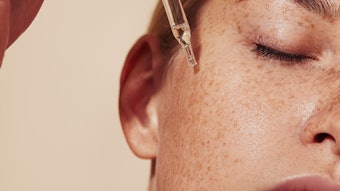Chuck Warren, senior director of research and development for Culver Business Units has been involved with hair care for 25 years. He began to work on Culver’s Pro-Line International after realizing how few products there were on the market for individuals with predominantly African hair.
Predominantly African hair is not one specific classification of hair but rather any mixture of hair types where African hair characteristics are most dominant, according to Warren. Unlike Asian or European hair types, African hair is typically very curly or kinky and is more elliptical in shape. Because of the curly or kinky pattern, African hair is more susceptible to tangling and breaking than other hair types. The bonding pattern of African hair is tight, consisting of hydrogen and polypeptides; therefore, African hair is more coiled and susceptible to damage.
When developing the Just for Me Texture Softener product, Warren kept this targeted group of consumers in mind, but shifted the focus to a traditionally underserved group, children with predominantly African hair. Because it primarily was the mothers choosing and applying products to their children’s hair, the company interviewed them, asking what features they were looked for in hair treatment products for their children.
Researchers discovered that parents of children with African hair desired products without harsh chemicals that were easily applied to and removed from hair, and products that provided the moisture to make their children’s hair more manageable.
Warren focused on creating products to address the specific needs of not only just African hair but also multiethnic or multiracial children with predominantly African hair. He observed that multiracial hair was becoming more balanced, meaning more equal in percentages of hair types. “You can’t get a comb through [multiethnic hair] yet it is not coarse enough to leave it in a natural state. It can be frustrating to the mom,” said Warren. He added that although the parents of children with this type of hair do not want to straighten their children’s hair completely, they want to make it curly or wavy so that it is manageable.
Warren’s solution was to find a balance of oils and creams to produce a product that could be combed through hair rather easily while maintaining its consistency. In addition, the formula needed to provide moisturization. He took all of these requirements into account when he chose the main ingredient in the hair texture softener: sunflower oil. According to Warren, sunflower oil (INCI: Helianthus annuus (sunflower) seed oil) often is used in the formulation of black hair care products for its relatively easy distribution in the hair. “There are only two oils that are easy enough to distribute in African hair—jojoba and sunflower,” said Warren










